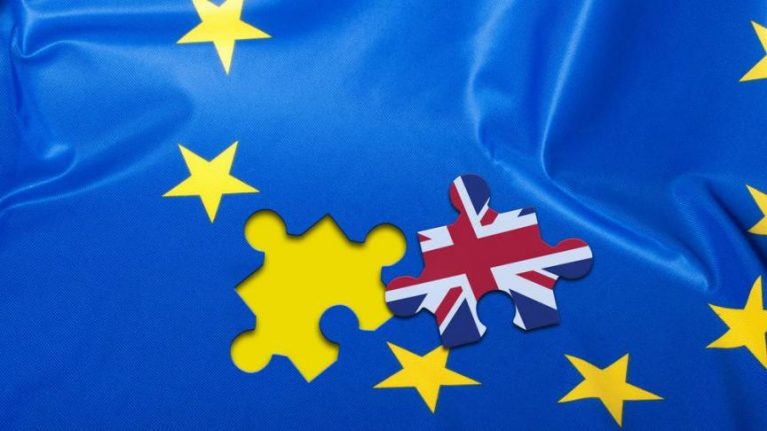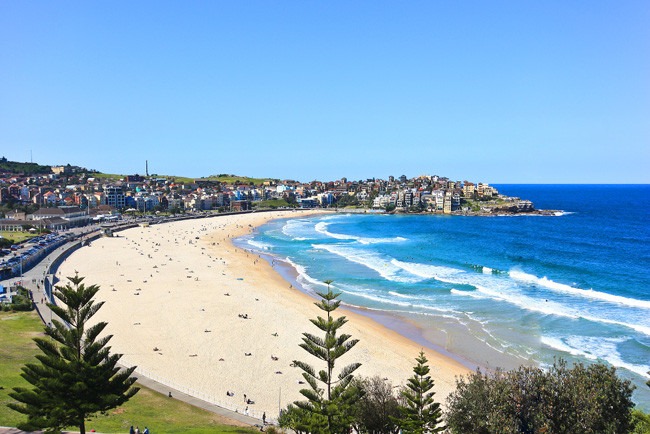The UK’s shock decision to leave the EU has left many questions hanging over not just Europe, but the wider world. What kind of trade agreement will the UK negotiate with the EU? What are the implications for people travelling to the UK? Will the UK ever score a single point again in the Eurovision Song Contest?
The UK has long been a popular spot for Australians heading overseas to travel, live, or set up a business. In fact there are around 1500 Australian companies operating in the UK, according to the Department of Foreign Affairs and Trade, and most of these use their London HQ as a base for doing business in Europe.
Smaller businesses can use the UK as a stepping stone into Europe which, thanks to the special trade agreements in place, is worth $12.5 billion to our export market.
Tim Harcourt is a former Austrade chief economist who now works at the University of NSW. He says the process for businesses is similar to Kylie Minogue’s career path – she began as a TV soap actress and popstar in the UK, and from there gained recognition across Europe.
“When you look at where exporters go, the UK has always dominated,” Harcourt says. “Exporters had the Kylie effect. They would go to London, and then splash onto the European scene from there.”
The draw of the UK was so noticeable that European officials would complain of “Channel fever” hitting Australian businesses, he says.
These ties didn’t just begin when the UK joined the EU in 1973, though. We’re talking further back even than Australian federation. In fact a full 120 years before the UK joined the European economic bloc, back in 1853, Westpac established a London office.
Despite these strong links between the two countries, the surprise vote to leave the EU draws into question the UK’s long-term role as an entry point into Europe for Australian businesses, as well as the future for thousands of Australians living in the continent.
Some of the world’s biggest names in business, such as Morgan Stanley, JP Morgan and Vodafone, have all hinted at the possibility of moving thousands of jobs away from London to other European cities.
So what are the chances that Australia’s businesses will have to change the way they interact with the UK following Brexit?
Uncertainty for banks
Although the financial market has pretty much stabilised following the referendum, it’s unclear what the longer-term impacts will be.
Months of painstaking negotiations between the UK and EU leaders will be the main factor in determining the impact on the economy, but the response from foreign companies will also make a difference.
You could argue that banks and financial firms stand to lose the most, as London has – or had – a lot going for it. Number one of course is access to the single European market, but a skilled workforce, robust legal system and lifestyle appeal all make it an attractive place to base a company.
Dublin, as the last English-speaking capital in the EU, could benefit as businesses seek an alternative to London. Another potential businesses hub is Frankfurt, which is likely to become home to companies created by the merger of Deutsche Börse and the London Stock Exchange.
At the moment, it doesn’t look like any large Australian companies are planning to pack their bags and move out of London, but the finance sector in particular is facing an uncertain future.
One example is insurance giant QBE, which sells insurance all over Europe from its base in London. Until now, this has been made possible by what is known as a “passport” arrangement, which lets companies do business in Europe with a UK licence. Post-Brexit, things could get much more complicated.
Another insurer with its European HQ in London is AMP Capital, and for now that looks set to continue.
According to a spokesman, “London is an important regional base for AMP Capital … the decision in the UK referendum to leave the EU doesn’t change this.”
But whatever they might be saying now, the “passport” system is essential for London-based businesses operating in Europe. If the UK has its “passport” confiscated, firms will have to question whether operating out of London is still viable.
QBE said last week that Brexit would have no “material” impact on its operations. However, the insurer was hit by a 14% drop in share prices in the days following the vote and has only partially recovered.
Another firm which would be hit by changes to the “passport” arrangements is Macquarie Group, which employs 1500 staff across its Europe, Middle East and Africa businesses. Its HQ for this part of the bank is in… you guessed it… London!
All of the big four Australian banks have offices in London which employ hundreds of staff between them, although they probably aren’t so reliant on business in Europe.
They all had UK offices long before the EU agreement, and Brexit may not have much impact on activities like foreign exchange and banking for people travelling between the UK and Australia.
Westpac is believed to be the longest-standing foreign bank in London. “Moves by the UK to exit the EU do not impact our global or local strategy to connect our customers to global financial and investor markets, 24 hours a day,” it says.
“Foreign exchange volatility is expected to continue for a period of time as the UK and Europe work through the political, regulatory, economic and social impacts of the exit.”
The possible detrimental effect of Brexit was also played down by mining giants BHP Billiton and Rio Tinto, who also have London headquarters.
“We do not foresee any significant impact on our business in the short term but we will continue to monitor this in the medium to long term,” a Rio spokeswoman said.
Other ASX-listed businesses that attribute a sizeable portion of their revenue to the UK market, including Compuershare, Westfield, investment manager Henderson, and Wesfarmers, have also been under the scrutiny of broking analysts since the vote. The latter has this year invested $705 into UK hardware firm Homebase.
Trade hub role in question
It’s not just the financial markets which will be waiting with bated breath as the UK negotiates with the EU over its future as a trade hub for the region.
Australia’s relationship with the UK could potentially take a big hit, both in terms of trade and travel, if the UK loses access to Europe’s common market.
It will all be down to lengthy diplomatic talks, but some observers believe the EU will fight hard to make an example out of the UK and impose the strictest deal possible in order to deter other countries from following in the UK’s footsteps.
Ben Wellings, who lectures in politics and international relations at Monash University, reckons the UK has wounded the pride of its fellow Europeans, perhaps akin to someone who ends a long-term relationship because they think they can get better elsewhere, and they will pay the price for this with restricted trade access to the continent.
“It won’t have the special access that it used to. It’s out,” Dr Wellings says. “It will have as special access to the EU market as we do now.”
Although this may place Australia in a strong position to trade with the UK, who will be searching for political allies, the UK will lose its appeal as a base that offers special access to the EU, he says.
“The notion that Britain would retain access to the single market, I think, is a fantasy. That’s because there’s this wounded European pride,” says Dr Wellings.
He also points out that of the $10 billion in services that Australia exports annually to Europe, half flows through the UK. We could end up torn in two directions as a result of Brexit.
Brexit will also be detrimental to Australia’s free trade agreement, which was hoped to be signed by 2018.
There are, however, plenty of experts who hold a more optimistic opinion and believe that Brexit needn’t be the end to our trade in Europe.
Perhaps the UK’s time as a stepping stone into Europe is over, and we’re now ready to make the big leap by ourselves and deal directly with the key players in the market.
Leon Berkelmans, director of the Lowy Institute’s international economy program, is one of the experts who backs this way of thinking.
“I suspect you don’t really need a big brother there as some sort of gateway. We can deal directly with the Italians, French or Germans,” Dr Berkelmans says.
Back to UNSW’s Harcourt, who believes the UK is more to Australia than just a trading post and the deep cultural and historic ties between the two countries mean the UK’s appeal as a destination for Australian firms is “unlikely to change”.
He also doesn’t give much credit to the idea of Frankfurt taking over from the City in London as a financial hub, since people were saying a similar thing back when the UK was first integrating with Europe.
“There was this big idea that once you brought the UK into the EU, Frankfurt would take the lead as the financial centre of the world, but it just did not happen,” Harcourt says.
Travel jeopardised
Whatever the outcome of the UK-EU negotiations, the general consensus among economists is that trade-wise we’ll end up in a worse position – but only slightly.
NAB economists this week commented that Brexit was “probably negative for Australian exports as weaker outlooks for UK incomes and Sterling lower the demand for our goods and services”.
Brexit could also have an impact on Australians wanting to travel to the UK – that’s about 1 million visitors a year.
There are more than 100,000 Aussies living in the UK, but the number working there has dropped over the past decade and Brexit may in fact help to reverse this trend.
One of the main points that helped to secure a Brexit victory was that of immigration – with many Brits unhappy about the immigration rules imposed on the UK by its EU membership that allowed free movement of EU residents.
If these rules are lifted, the UK may be in a position to tighten up EU migration and allow freer movement from countries elsewhere in the world.
Tory politician Boris Johnson, who was one of the loudest voices in the ‘Leave’ campaign, has made the point that Brexit will bring the UK and Australia closer thanks to the removal of European-imposed migration laws.
In 2014, Mr Johnson talked about a “bilateral mobility zone” agreement between Australia and Britain, similar to the trans-Tasman agreement in place between Australia and New Zealand.
Deloitte Economics backed this theory, telling clients this week that Brexit could potentially open up opportunities for Australians to work in the UK, with “reform” of work rules for people with British ancestry also a possibility.
Businesses might not be queuing round the block to set up shop in London post-Brexit, but there is light at the end of the tunnel for those who dream of moving there to work.











